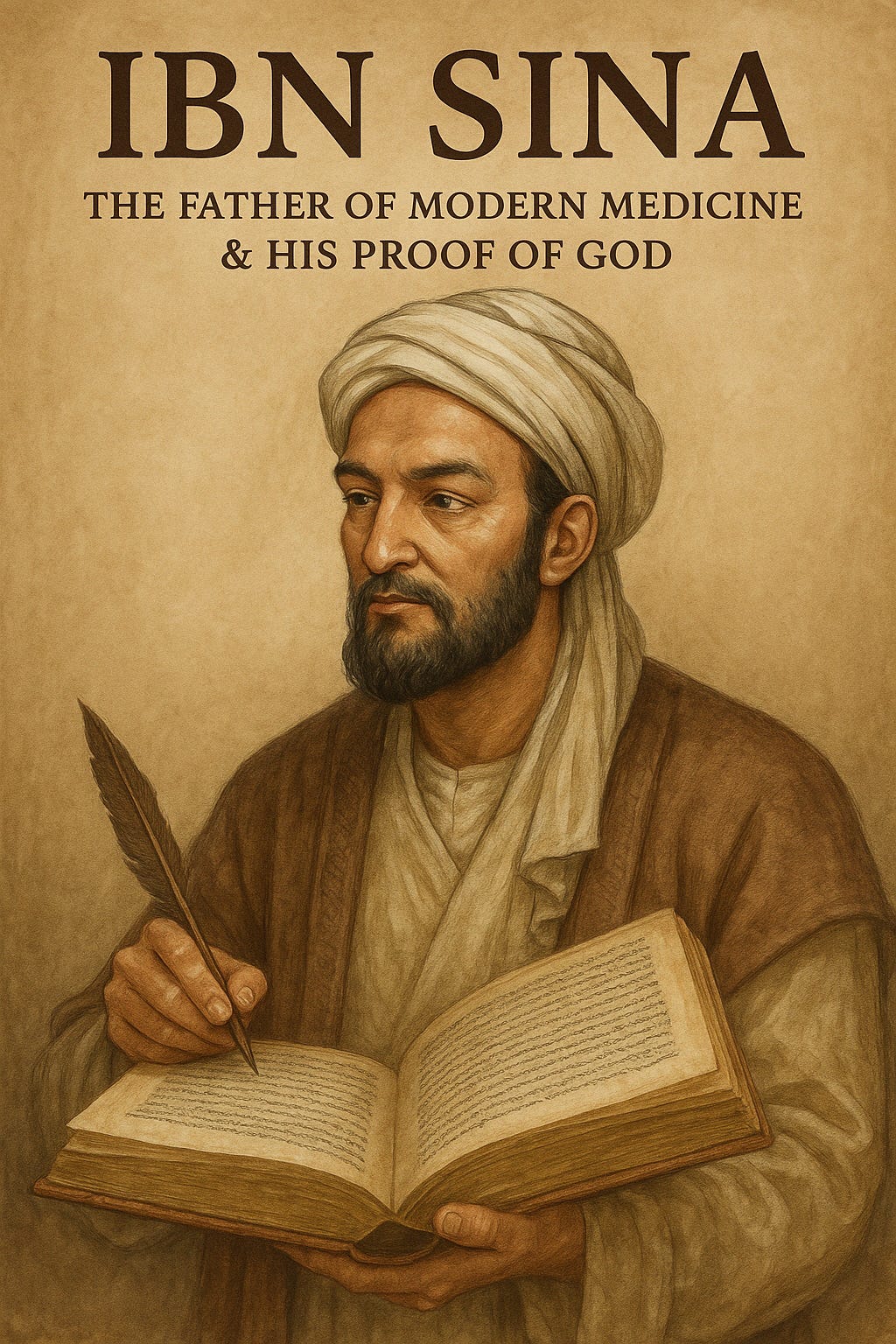Ibn Sina (Avicenna): The Father of Modern Medicine & His Proof of God
The Genius of Ibn Sina: How a 10th-Century Physician Defined Modern Science and Proved Allah’s Existence
Ibn Sina (980–1037 CE), known in the West as Avicenna, is celebrated as the father of modern medicine. Born in Afshona, Uzbekistan, during the Abbasid Caliphate, he was a child prodigy who memorized the Quran by age 10 and mastered medicine by 16. His genius spanned not only healthcare but also philosophy, astronomy, physics, and metaphysics—where he formulated one of the most influential arguments for Allah’s existence.
Revolutionizing Medicine: The Canon of Medicine
Ibn Sina was the first to fully document human anatomy and systemize medical knowledge in his magnum opus, “The Canon of Medicine”. This encyclopedia covered:
Diseases & treatments (physical and psychological)
Trauma surgery and drug therapies
Preventive medicine and public health principles
Used as a medical textbook in Europe for over 600 years, it laid the foundation for modern clinical practice.
The Philosopher’s Proof: Allah as the Necessary Existent
Beyond science, Ibn Sina’s metaphysical philosophy profoundly shaped Islamic theology. His most famous argument for God’s existence—"The Proof of the Truthful" (Burhān al-Ṣiddīqīn)—states:
Existence is either necessary or contingent:
A contingent being (like humans, animals, or stars) depends on something else for existence.
A necessary being (Wājib al-Wujūd) cannot not exist—it is self-sufficient, eternal, and uncaused.
An infinite chain of contingent causes is impossible:
If everything needed a prior cause, there would be no ultimate reason for existence.
Thus, there must be a necessary, uncaused cause—which Ibn Sina identifies as Allah.
This being is One, Perfect, and Immaterial:
Since the Necessary Existent cannot depend on anything, it must be:
Eternal (no beginning or end)
Simple (not composed of parts)
Pure Goodness & Truth (as deficiency implies dependency).
This argument influenced later giants like Al-Ghazali, Aquinas, and Leibniz, bridging Greek philosophy with Islamic theology.
A Legacy Beyond Borders
Ibn Sina authored over 450 works, revolutionizing:
Mathematics (advancing algebra and geometry)
Astronomy (mapping planetary motion)
Psychology (linking mental health to physical care)
Literature (writing allegories on the soul’s journey).
Centuries later, his ideas remain cornerstones of science and philosophy—proving that reason and faith, in his vision, were never at odds.


